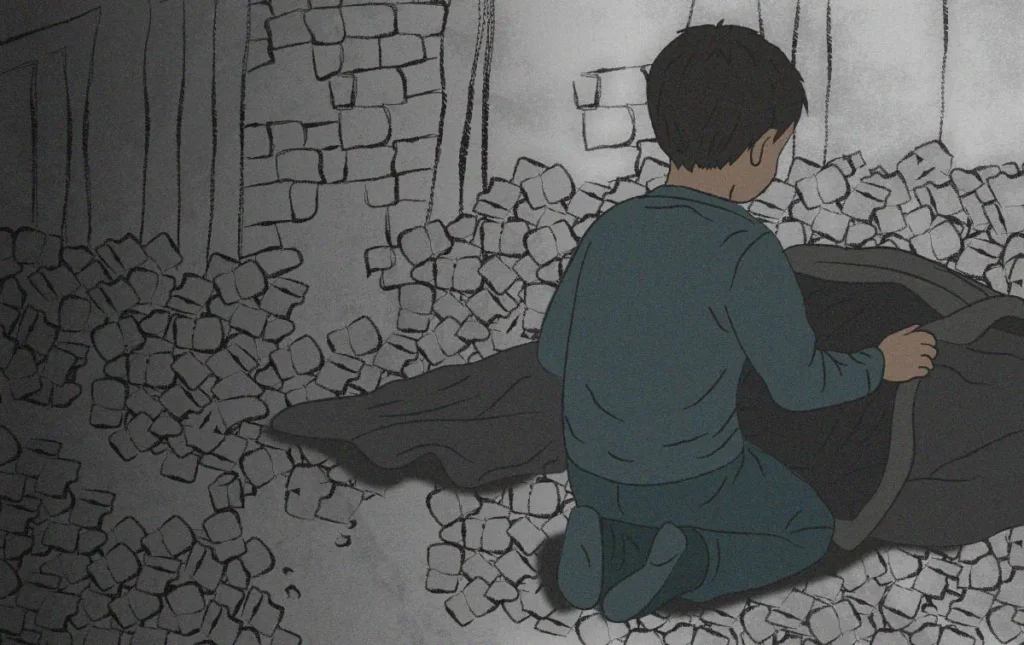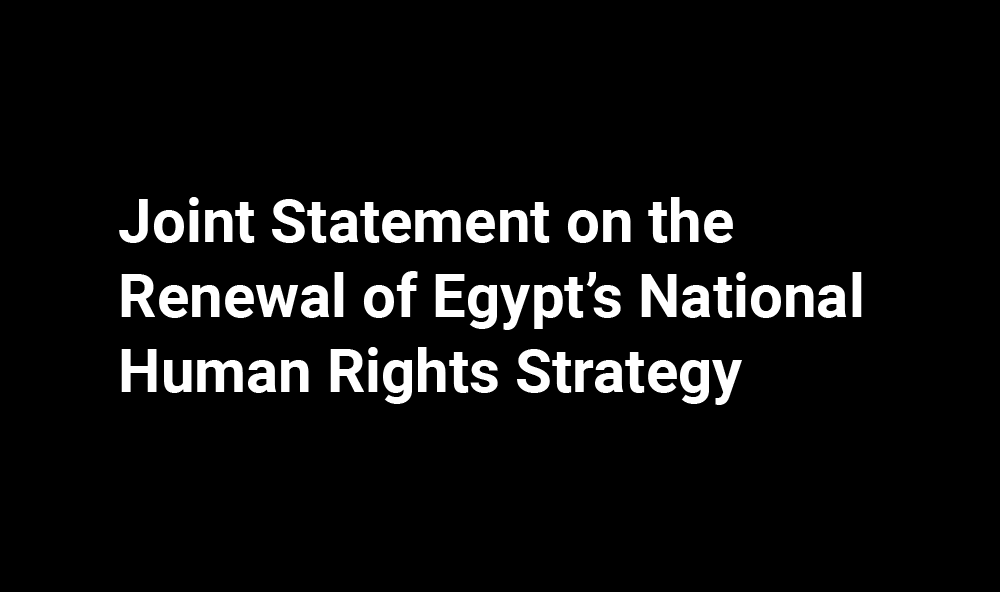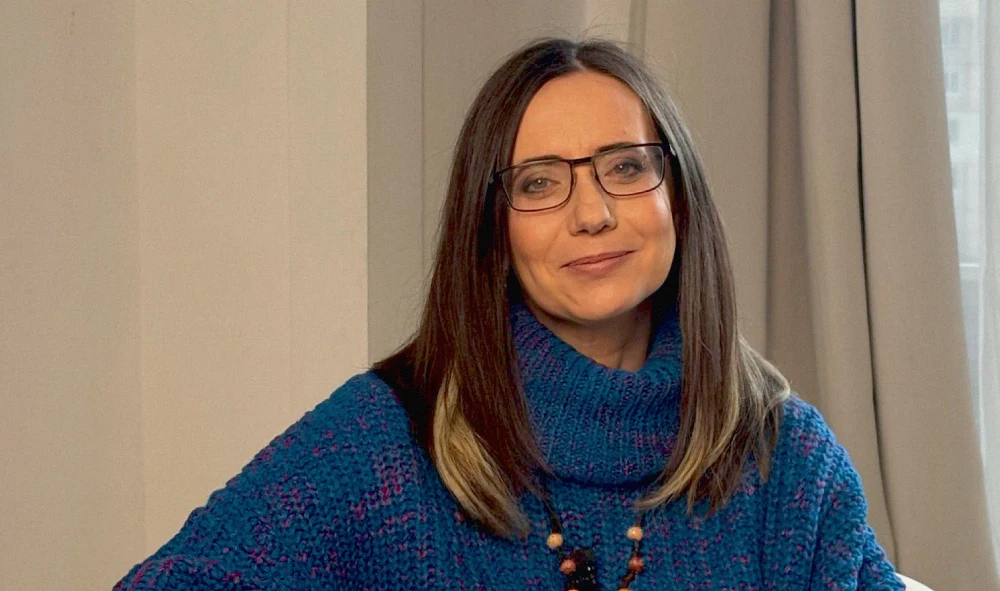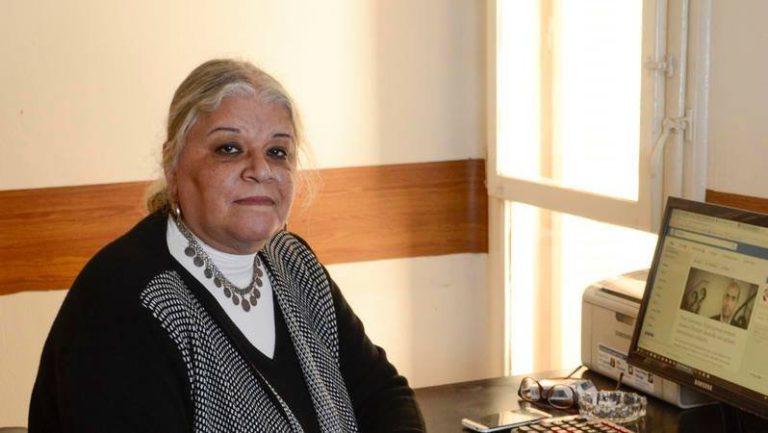GAZA – A Palestinian man from Gaza speaks a little Hebrew and believes it might save his life.
When Israeli soldiers approach a school in Khan Younis, the man and a few others decide to try to speak with the soldiers, hoping to reassure them that only civilians are in the area.
Shortly after, he is killed — along with the other men.
Later, the man is found lifeless by his son. The boy says nothing, but his mother grows suspicious when she sees him without his jacket.
Only when fieldworkers from the human rights organization Palestinian Centre for Human Rights (PCHR) interview the boy do they understand why: He had covered his father’s dead body with his jacket, and did not tell his mother fearing that she would return to the school and might get killed too.
The story is told by Hamdi Shaqqura, Programme Director at the Palestinian Centre for Human Rights (PCHR), which is DIGNITY’s partner organization in Gaza.
Together with his colleagues, PCHR documents alleged war crimes, crimes against humanity, and genocide including torture and other inhuman treatment, committed by the Israeli army in Gaza. In the past, they have also documented abuses committed by the Palestinian authorities.
And as he says:
»I have worked with human rights for 30 years and lived through several wars in Gaza«.
»But what we are witnessing now surpasses everything«.
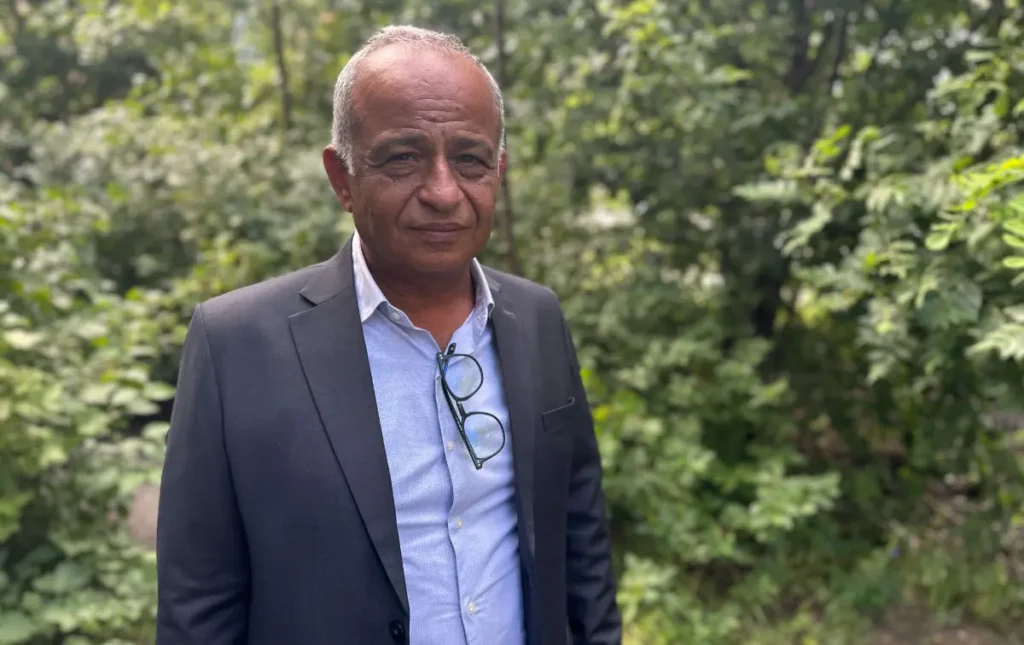
An unprecedented collapse
Hamdi Shaqqura — like much of Gaza’s population — was displaced south to Rafah when Israeli attacks towards the end of 2023 devastated large parts of northern Gaza.
Without an office, electricity, or necessities, and under constant bombardment, PCHR quickly rebuilt its operations through its fieldworkers and lawyers, as the work had to continue, as he says.
»We prioritized and insisted on documenting the war crimes, because we are among the very few who could carry out this task in Gaza,« he says:
»Our strength lies in being present in Gaza. We interview and take testimonies from the victims of the war. We listen to them. In the beginning, I didn’t think it could get any worse — but it did. I have never before seen anything as devastating as what is happening in Gaza now,« he says, and continues:
»Still, I’m proud that we were able to resume our work so quickly. Our role is to document and inform the international community — to tell the world what is happening. Israel denies that it is attacking the civilian population and civilian infrastructure. Our task is to tell the truth.«
So far, three of PCHR’s colleagues have been killed in Israeli attacks.
Among them was Nour Naser Abu Al-Nour, a lawyer at PCHR’s Women Rights Unit, who was killed in Rafah along with her family while she was in contact with a colleague. Dana Yaghi, also a lawyer at the same unit, was killed in an attack in northern Gaza together with 40 other members of her family, including many children. Ihab Marwan, an administrative assistant, was killed with his wife and his two children in an Israeli airstrike along with his wife and two children.
»They were all dedicated staff who were deeply committed to our work. Some of them I was messaging with just the day before they were killed, as they were talking about how they would coordinate the next day’s work.«
Several of PCHR’s staff members are now working from Cairo, where Hamdi Shaqqura himself is currently located. PCHR’s fieldworkers and lawyers continue to operate and work inside Gaza.
Systematic use of torture
PCHR works, among other things, to document torture and other inhuman treatment that Palestinians are subjected to while in Israeli custody.
»We provide legal assistance to those detained by Israel,« explains Hamdi Shaqqura.
»Many do not have access to a lawyer, and most are held without any official charges. When they are released from detention and prisons, they bear scars on both body and mind because torture is carried out systematically against Palestinians.«
It requires extensive resources for Hamdi’s team to reach the survivors who are often deeply traumatised and have lost trust in other people.
»It usually starts with a request from the family. Then we try to find out where the person is being held. We need to be able to visit them — often that is the only way to gain insight into their condition,« explains Hamdi.
Several international, Palestinian, and Israeli sources — including the UN, the Public Committee Against Torture in Israel, and B’Tselem — have documented torture and other inhuman treatment of Palestinians over many years.
For example, the Israeli NGO Public Committee Against Torture in Israel has filed over 1,400 torture complaints since 2001.
In 2008, a coalition of 14 Israeli and Palestinian NGOs published a report on the “widespread and systematic” use of torture by Israeli authorities.
In 2016, the UN Committee Against Torture raised several concerns regarding the treatment of Palestinians in Israeli detention. All of this occurred before the Hamas attack on October 7, 2023, after which reports of abuse and torture have only increased.
In December 2023 and again in February 2024, NGOs warned against the systematic abuse of detained Palestinians in Israeli detention centres.
The Israeli human rights organization B’Tselem describes the torture as a “systemic, institutional policy.”
Earlier this year, PCHR published a report titled Torture and Genocide, based on 100 interviews PCHR conducted with Palestinians who lived in Gaza before October 7, 2023, were detained by Israel during the year between October 7, 2023, and 2024, and have since been released.
»The report shows that torture is not isolated incidents, but part of a broader policy, not only as a violation of human rights or a war crime, but also as an integral part of Israel’s ongoing genocide against the Palestinians.«
Something I’ll never forget
Hamdi Shaqqura emphasizes that no one knows precisely how many Palestinians are currently detained in Israeli prisons and detention centers. It amounts to thousands — perhaps tens of thousands, he says.
Through the report, Hamdi Shaqqura has read countless testimonies about torture and the killing of civilians.
»It is essential that the victims are heard. We publish hundreds of their stories. I read them all before publication. It’s overwhelming. If I find them challenging to read, how much more so must it be for those who have lived through it themselves?«
Still, there is one story that continues to haunt him: the little boy who found his lifeless father and covered him with a jacket.
»That testimony I will never forget,« he says, pausing.
»It is crucial that this knowledge is spread. No one should later be able to say, ‘I didn’t know,’« he says.
»When it comes to concrete action — especially from European states — it’s not information that’s lacking. It’s political courage. Gaza is often referred to as the world’s largest open-air prison. Now it is also the world’s largest graveyard. What more knowledge does the world need to act?«
According to Hamdi, arms sales to Israel must stop. This includes all activities that help maintain the illegal occupation of Palestinian land.
»There is a need for sanctions against Israel. There is no longer any excuse. Everyone knows what is happening,« he says.
»If you only fight impunity in Ukraine but ignore Gaza, then you have politicised the international legal order. And that is a dangerous path to take.«
The fight against impunity
The Israeli state must be held accountable — and that also applies to the states that enable its military operations, says Hamdi.
»We are standing at a crossroads: either we defend the international order based on human rights, or we move toward chaos. As human rights defenders, we must stand firm.«
»Who would have thought that the ICC would charge Netanyahu with war crimes, or that Israel would be accused of genocide before the ICJ? These are positive steps. As a human rights defender, I dream of a world with peace and justice for all. Everyone is equal before the law. That is the only instrument we Palestinians have left. We have the right to the same justice as everyone else. And here, the EU and Denmark play an essential role.«
»Denmark should take the lead now and wholeheartedly support the ICC and the ICJ, while Trump and Netanyahu try to undermine our legal system. This is about upholding the rule of law and combating impunity. That’s why it’s so crucial to respect the rulings of the courts,« he says, concluding:
»It can be hard to talk about hope right now. But if we lose hope, we lose everything.«
“My colleagues in Gaza make me proud and give me hope. And the global solidarity with Gaza is also something that warms my heart and gives us the strength to keep fighting for human rights in Gaza.«

